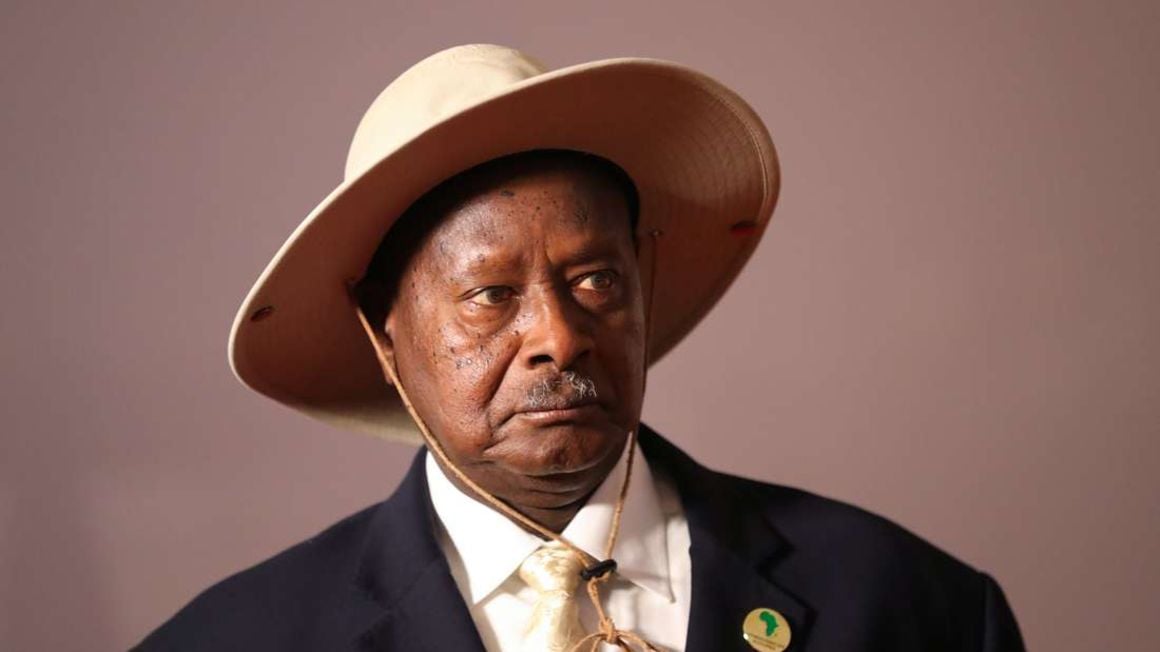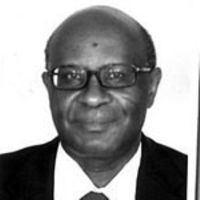
Ugandan President Yoweri Museveni. PHOTO | AFP
Summary
- I recall joking with a senior Ugandan some six years ago when I remarked “give Museveni an oil refinery and he will be ready to retire”.
- I still believe to this day, that commercialisation of Uganda oil discoveries is a critical legacy that President Museveni dearly looks forward to.
- He has been personally involved in the oil project ever since oil was discovered in 2006.
- Therefore, I could not visualise Museveni retiring before he presses the button of a new refinery in Western Uganda or flags off a crude oil tanker exporting “first oil”, whichever comes first.
I recall joking with a senior Ugandan some six years ago when I remarked “give Museveni an oil refinery and he will be ready to retire”. I still believe to this day, that commercialisation of Uganda oil discoveries is a critical legacy that President Museveni dearly looks forward to.
He has been personally involved in the oil project ever since oil was discovered in 2006. Therefore, I could not visualise Museveni retiring before he presses the button of a new refinery in Western Uganda or flags off a crude oil tanker exporting “first oil”, whichever comes first.
Yes, Yoweri Museveni and indeed most Ugandans have put so much hope in oil as the one prime project that will turnround the socio-economic fortunes of Ugandans. Many young Ugandans have created new careers waiting to fully participate in oil production and commercialisation.
I remember a 2007 Foster Wheler feasibility study that recommended a 60,000 barrels per day refinery in Western Uganda. Then in 2008 President Museveni got the EAC Summit to endorse the East Africa Refineries Report which supported the refinery, with investment and market participation by regional countries. To us outside Uganda, we have observed that to this date the refinery project has remained a point of President’s personal attention.
It is now 15 years since oil discovery, and yet no one can vouch with any certainty when Uganda will commercialise its oil either through refining or exports. Such a long delay stands as an indictment to Uganda authorities, for indeed it was possible to accomplish the project much earlier. For one reason after another, and year after year, opportunities to commit investments were lost.
I believe Ugandan authorities were mostly over-cautious in managing risks, and slow in enabling the investors to commence the upstream project. Uganda took overly long to come up with what I think is one of the best legal, regulatory, institutional, and fiscal frameworks for oil and gas. However, whereas the framework provided effective guarantees on Ugandan resources, the “time value” of the oil project was sacrificed.
The other areas of unreasonable delays were the protracted disputes on capital gains taxes, and the lengthy process of deciding on the final oil export route.
As the clock ticked, global oil markets were quickly crumbling as the world over produced oil. In 2014 oil prices dropped from above $ 100 per barrel to below $30. Realisable oil export prices fell below break-even prices for the oil projects. This made investors dither and delay decisions on investments. Then Covid-19 pandemic in 2020 destroyed a large fraction of global oil demands, leaving the world even more over-supplied. Oil prices have on average persisted below $50 to this day.
Further, the ongoing global momentum for transition from oil to renewable energy is discouraging oil investors from committing long term budgets for new oil projects. Specifically, Total, the two-thirds investor in Uganda oil, is among the most active energy transition advocates, committing increased budgets for renewable energy (solar, wind etc.). The other investor CNOOC, is more flexible with investment decisions usually guided by Chinese government energy and political strategies.
Going forward, it will never be the same for upstream and midstream oil investments globally or even here in Africa. This is a fact I am sure Uganda will need to reckon with as investment commitments are delayed by oil companies. If oil prices remain below breakeven economics, it will be the oil companies, not host countries, who will hold the power and control of deciding when (and if) investments can proceed.
In Kenya, investors appear to have abandoned plans for oil production developments, waiting to sell their assets at the right opportunity. And Kenyans have apparently resolved to move on without the Turkana oil.
The ongoing delays in committing investments for the oil refining and export projects by oil companies may have partly influenced President Museveni decision to linger on to resolve the impasse. Not an easy call since the fate of the oil project may be entirely dependent on global oil markets in general, and oil companies.
If investment decision is made this year, the earliest Uganda can expert dollars from their oil is 2024, which is 18 years since oil discovery.





No comments :
Post a Comment